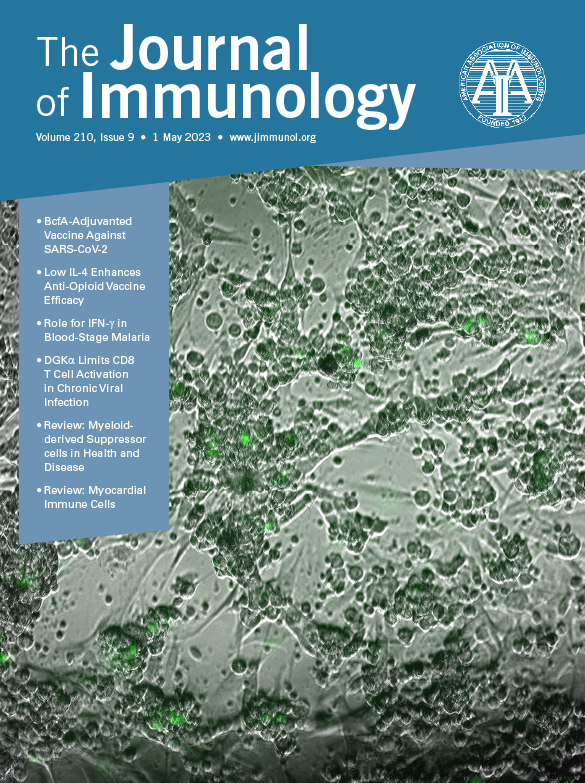
Exhibitor Workshops
Take advantage of the knowledge-building opportunities presented in Exhibitor Workshops. These workshops explore the newest technologies, products, and services through presentations, demonstrations, and discussions.
Friday, May 12, 2023 10:00 AM – 10:45 AM Exhibit Hall D, Room 1
24. Exhibitor Workshop: Luminex—A Diasorin Co.
Measuring Immune Activation with the Amnis® High-Throughput Imaging Flow Cytometers and Advanced Machine-Learning Analysis Tools
Presenter
- Brian Hall, Product Manager, Imaging Flow Cytometry
Imaging flow cytometry is an effective tool for identifying immune responses, including T cell and monocyte activation, and immune synapse formation. However, data analysis from these assays can require a high level of expertise in image analysis software, making it difficult for novice users to execute. Recent advancements in machine learning have dramatically improved the ability of immunologists to gain insights from their experiments. In this workshop, we will highlight the Amnis® AI Image Analysis Software and demonstrate how this powerful tool can be used to automatically identify critical cell phenotypes in your Amnis® ImageStream®X Mk II and FlowSight® Imaging Flow Cytometer ata sets.
Friday, May 12, 2023 10:00 AM – 10:45 AM Exhibit Hall D, Room 2
25. Exhibitor Workshop: 10x Genomics
Fast-Track Antigen Specific B and T Cell Discovery
Presenter
- Jose Jacob, Product Manager, Immune Profiling
B and T cells perform a vital function in the adaptive immune system, recognizing cognate antigens, and subsequently triggering an immune response against them. However, isolating antigen-specific B and T cells out of a complex sample with traditional techniques has proved challenging and time consuming for those in drug development. To solve this problem, we developed Barcode Enabled Antigen Mapping (BEAM) to enable easy identification and characterization of antigen-specific B or T cells.
Friday, May 12, 2023 10:00 AM – 10:45 AM Exhibit Hall D, Room 3
26. Exhibitor Workshop: Akoya Bio
Spatial Phenotyping: Rapid, Comprehensive Phenotyping for Immune Disorders
In this session, invited speakers will demonstrate how high-plex spatial phenotyping analyses are used to provide breakthrough insights into tissue immunology and immune system dysfunction. You will discover how the PhenoCycler® - Fusion System and the PhenoCode™ Discovery Panels enable a rapid workflow for ultra-high plex analysis of varied tissue samples. From applications in COVID pathology to single -cell cancer immunotherapy, find out more about Akoya’s solutions that are paving the path towards the identification of novel therapeutic biomarkers and improved patient outcomes.
Friday, May 12, 2023 11:15 AM – 12:00 PM Exhibit Hall D, Room 1
37. Exhibitor Workshop: Miltenyi Biotec
Spatial Characterization and Deep Phenotyping of CD8+ Tumor-Infiltrating Lymphocytes in the Tumor Microenvironment
Presenter
- Elvira Criado-Moronati, Team Coordinator in the Personalized Immunotherapy R&D Department
The success of adoptive cell therapy (ACT) using tumor-infiltrating lymphocytes (TILs) depends on the presence of a sufficient number of tumor-reactive T cell in the final cell product. To enhance the efficacy of ACT, it is necessary to increase the frequency of these cells by introducing an enrichment prior to their ex vivo expansion. The use of surface markers based on a tumor-reactive T cell phenotype is an appealing option, as it is independent of the target an tigen. In this workshop, we will demonstrate how MICS (MACSimaTM Imaging Cyclic Staining), our multiplexed imaging technology, can be utilized to phenotypically characterize TILs in tumor tissues. By using a panel of 98 antibodies, we analyzed the tumor microenvironment (TME) and the phenotype of CD8+ TILs in close proximity to tumor cells, which could indicate tumor recognition. Our results confirmed the presence of several cell subsets composing the TME and their spatial distribution in the tissue. CD8+ TILs located near tumor cells expressed exhaustion markers associated with tumor reactivity, such as CD137, PD1, CD39, ICOS, and CD103. Further characterization using flow cytometry and single-cell RNA sequencing confirmed the presence of exhausted CD8+ TILs that co-expressed these markers. We will demonstrate that cutting-edge technologies like MICS can support the advancement of immunotherapies by providing a comprehensive characterization of the TME and a platform for screening T cell markers at protein level to develop enrichment strategies.
Friday, May 12, 2023 11:15 AM – 12:00 PM Exhibit Hall D, Room 2
38. Exhibitor Workshop: Luminex—A Diasorin Co.
Designing Custom Multiplex Assays to Support Vaccine Development
Presenters
- Joanna Dragich, Ph.D., Scientist III, Applications & Development
Vaccine development requires precision and reproducibility at every step, from drug product characterization to serotype monitoring, lot-release testing, and post-market surveillance. Using the power of xMAP multiplexing technology, these parameters and more can be evaluated together in a single platform. From early discovery r esearch to clinical diagnostics, xMAP technology can be applied to meet your research needs. This workshop will discuss how to approach designing custom multiplex assays for vaccine development.
Friday, May 12, 2023 11:15 AM – 12:00 PM Exhibit Hall D, Room 3
39. Exhibitor Workshop: MilliporeSigma
Multi-Platform Biomarker Analysis with MILLIPLEX® Multiplex Immunoassays and Single Molecule Counting (SMC®) Technology for Ultrasensitive Protein Detection
Presenter
- Anthony J. Saporita, Ph.D., R&D Manager
Multiplex immunoassays have been critically important for profiling the expression of a wide variety of immunomodulatory proteins, including cytokines, chemokines, growth factors, and complement proteins from small volumes of biological fluid. This presentation will introduce several new immunoassay products from MilliporeSigma and highlight the advantages of our MILLIPLEX® kits for lot-to-lot consistency, sensitivity, flexibility, and reproducible sample measurement. We will also showcase high-sensitivity SMC® immunoassays for the detection of low-abundance cytokines.
Friday, May 12, 2023 12:30 PM – 1:15 PM Exhibit Hall D, Room 1
41. Exhibitor Workshop: Miltenyi Biotec
Unlock the Full Potential for Your CAR NK Cells
Presenter
- Jonathan Druge, Jr., Immuno-oncology Applications
Natural killer (NK) cells are a promising tool in the fight against cancer. Allogeneic NK cells derived from suitable donors, showed high-clinical safety and impressive clinical outcomes in patients with acute myeloid leukemia (AML). Further engineering of NK cells with chimeric antigen receptors (CARs) bolsters their antitumor activity and mediates the specific killing of tumor cells. But despite substantial advances, unlocking the full therapeutic potential of CAR NK cells requires investigating their limited persistence, proliferation, and impaired in vivo antitumor activity. As a longtime trusted partner for cell and gene therapy solutions, Miltenyi Biotec is committed to advancing the CAR NK field. During this workshop, we will showcase how our most recent product developments and complete workflows can effectively advance your research and generate scalable and reproducible results. Get insight on how to isolate functional NK cells directly from your blood products, boost your lentiviral transduction efficiency, easily activate and expand your NK cells, and streamline your in-process and quality control (IPC/QC) methods with our latest flow analysis solutions. Join us and unlock the full potential of your CAR NK cells.
Friday, May 12, 2023 12:30 PM – 1:15 PM Exhibit Hall D, Room 2
42. Exhibitor Workshop: BD Biosciences
FlowJo™ Software for High-Dimensional Analysis: New Approaches to Expedite Discovery
Presenter
- John Quinn Ph.D., Director of Science and Product Development, BD Bioinformatics – FlowJo
Join us for a deep dive into algorithmic analysis of Flow Cytometric data. In this talk we will begin with an introduction to the terms and types of algorithms used in computational analysis. We will then push the boundaries by introducing a set of new tools and approaches designed specifically to make clustering results easier to understand and propagate results to future experiments. We will illustrate this functionality within the framework of a BD® Research Cloud workflow, demonstrating how the full workflow can be streamlined and the results shared easily with collaborators.
Friday, May 12, 2023 12:30 PM – 1:15 PM Exhibit Hall D, Room 3
43. Exhibitor Workshop: Bio-Rad Laboratories
Improve Your Flow Data in 10 Easy Steps
Presenters
- Mike Blundell, Ph.D., Global Product Manager
- Sharon Sanderson, Ph.D., Global Product Manager
Immunology often relies on flow cytometry to provide the latest data, but how can you obtain high quality data before sharing it with your peers and the scientific community? As flow cytometry experts, Bio-Rad™ understands the many challenges faced when trying to obtain good quality data and a clear result to answer your scientific question. During this presentation, you will learn some top tips for improving your flow data with a focus on immunophenotyping panels. Using example data, including Bio-Rad’s new StarBright Dyes™ , we will demonstrate that, with considered panel design, careful sample preparation, use of the most appropriate reagents, and adherence to best practices , you can improve your flow data to get clear result. Join us to find out how our ten quick and simple concepts will improve your flow cytometry.
Friday, May 12, 2023 1:45 PM – 2:30 PM Exhibit Hall D, Room 1
56. Exhibitor Workshop: Thermo Fisher Scientific
Ventures Into the Fluorosphere—What Spectral Cytometry Teaches Us About Conventional Cytometry and the Everchanging Topography of the Immunological Landscape
Presenter
- Kim Lueck, R&D Scientist, Protein & Cell Analysis
High dimensional full spectrum flow cytometry grants access to previously unattainable parameters in cellular immunology. However, spectral cytometry comes with its own idiosyncrasies and unique constraints. In this tutorial, we take a deep dive into a broadly focused human immunophenotyping panel with over 30 parameters to highlight some of the special features and potential pitfalls of spectral panel design. A demonstration of how such a panel can be adapted to deeply focus on specific immune cell subpopulations will also be presented.
Friday, May 12, 2023 1:45 PM – 2:30 PM Exhibit Hall D, Room 2
57. Exhibitor Workshop: BioLegend
Modulating Levels of Cell Surface CD6 Regulates Effector T Cell Activity and Treg Development
Presenter
- Jeanette Ampudia, Associate Director, Immunology and Research Operations
CD6 is a co-stimulatory receptor that is highly expressed on the surface of proinflammatory Teff cells, whereas it is expressed at low levels on anti-inflammatory Treg cells despite similar levels of CD6 mRNA. Not only does this make CD6 an interesting target for suppression of autoreactive Teff cells, it also suggests a role in controlling Treg cell function. Recent data suggest that modulation of this receptor may be important to regulating autoimmunity. Equillium is developing itolizumab, a clinical stage humanized anti-CD6 monoclonal antibody that modulates cell surface levels of CD6 by instigating cleavage of the receptor via a membrane bound serine protease, for the treatment of autoimmune conditions. Previously, it was thought that itolizumab only inhibited Teff activity, while leaving the Treg population unaffected. However, we have recently shown that treatment of naïve T cells with itolizumab to remove CD6 results in Tregs with better stability and function as indicated by a higher frequency of FoxP3+Helios+ double positive cells and increased suppression of Teff cells. These data suggest that reduced levels of cell surface CD6 associated with itolizumab treatment improve Treg function and Treg:Teff ratios in patients with autoimmune and inflammatory diseases.
Friday, May 12, 2023 1:45 PM – 2:30 PM Exhibit Hall D, Room 3
58. Exhibitor Workshop: Alamar Biosciences
Expanding the Limits of Immune Profiling with Automated, Highly-Sensitive, Multiplexed Analysis
Presenters
- Alex Forrest-Hay, VP of Sales, Introducing NULISA™ and the ARGO™ System, a Fully-Automated, Ultra-high Sensitivity Platform for Liquid-based Protein Analysis
- Xiao-Jun Ma, Ph.D., Chief Technology Officer, Highly-Sensitive and Robust Protein Analysis with 200-plex NULISAseq™ Inflammation Panel
- Susanne Schmidt, PhD, Principal Investigator, University Hospital Bonn, Activation and functional modulation of myeloid cells in SARS‐CoV‐2 infection
Alamar Biosciences provides automated, high-throughput solutions for high sensitivity protein analysis and multiplex capability. Our proprietary NULISA™ Chemistry utilizes a novel sequential capture and release method that significantly reduces background signal and increases the sensitivity and dynamic range compared with standard ELISA or PEA approaches. The NULISA Immuno-Inflammation Panel contains over 200 important markers of immune response enabling comprehensive analysis of immune and inflammatory disease s. The ARGO™ Platform provides a fully-automated workflow with fewer than 30 minutes hands-on time from sample to data, enabling highly reproducible results with CV’s of less than 10%. With both qPCR and NGS readouts, the ARGO™ System enables both focused analysis of validated biomarkers to highly multiplexed profiling of hundreds to ultimately thousands of proteins. This workshop will present data describing the performance of Argo™ system and NULISA™ Assays for cytokine analysis in plasma samples, and demonstrate superior sensitivity and lower limits of detection in comparison to other commercially-available solutions.
Saturday, May 13, 2023 10:00 AM – 10:45 AM Exhibit Hall D, Room 1
110. Exhibitor Workshop: Sony Biotechnology, Inc.
TAC-T Cells Elicit Durable Anti-Tumor Responses in Preclinical Models of Solid Tumors
Presenter
- Heather L. MacGregor, Ph.D., Senior Scientist, Triumvira Immunologics Inc.
The T cell antigen coupler (TAC) is a novel chimeric receptor that redirects TAC-engineered T cells against tumor antigens and activates T cells via the endogenous T cell receptor complex. TAC01-HER2, a first-in-class TAC-T product targeting HER2 (ERBB2), has entered a phase I/II clinical trial. We characterized TAC-T cells during anti-tumor responses. Kinetics of proliferation, TCR signaling, activation, and memory generation by tumor-activated TAC-T cells were assessed by Sony® ID 7000 spectral flow cytometer and by scRNA-seq. The cytotoxic robustness was assessed through multiple rounds of tumor cell exposure in vitro and immunologic durability was tested in a xenograft tumor rechallenge study. We show that TAC-T product mounts a durable anti-tumor response, comprising functionally active T cells with robust self-renewal capacity that do not become terminally exhausted.
Saturday, May 13, 2023 10:00 AM – 10:45 AM Exhibit Hall D, Room 2
111. Exhibitor Workshop: Canopy Biosciences–A Bruker Company
Quantitative Single-Cell Spatial Immune Profiling with ChipCytometry™
Presenters
- Tim Sindelar, Product Manager, Precise Spatial Multiplexing with ChipCytometry: An Open-Source Solution to High-Throughput Spatial Biology
- Gustavo A. Monasterio Ocares, DDS, Ph.D., Postdoctoral Researcher, Villablanca Lab, Immunology and Allergy Division, Dept. of Medicine, Solna, Karolinska Institutet, Spatial Immunome of Distal Tissues During Intestinal Inflammation
Single-cell spatial immune profiling is transforming the way we study immunology by bringing advanced single-cell analysis to the context of intact tissue. Join us to learn how the ChipCytometry platform enables quantitative single-cell analysis of high-plex assays for deep immune profiling in tissue samples. Hear from a ChipCytometry user about how the technology is applied to spatially dissect the immunome from distal tissues during intestinal inflammation.
Saturday, May 13, 2023 10:00 AM – 10:45 AM Exhibit Hall D, Room 3
112. Exhibitor Workshop: 10x Genomics
Spatial transcriptomics of pancreatic premalignancies reveals cellular and molecular alterations of progression to pancreatic ductal carcinoma
Presenter
- Luciane T. Kagohara, Ph.D., Associate Professor of Oncology, Sidney Kimmel Comprehensive Cancer Ctr., Johns Hopkins Univ.
The tumor microenvironment is composed of highly heterogeneous niches, often with varying degrees of immune infiltration. The spatial distribution of immune cells with respect to malignant cells can directly impact patient prognosis and overall survival outcomes. The Visium CytAssist Spatial Gene Expression assay uses a whole transcriptome probe-based approach, termed RTL, to detect and quantify mRNA expression with spatial context.
Saturday, May 13, 2023 11:15 AM – 12:00 PM Exhibit Hall D, Room 1
122. Exhibitor Workshop: STEMCELL Technologies, Inc.
Next-Generation Tools for NK Cell Research
Presenters
- Amanda Durkin, Ph.D., Product Manager, Immunology
- Peter Morin, Technical Scientist, Research & Development
Natural killer (NK) cells are gaining popularity as a therapeutic tool for their unique ability to target and kill virus-infected and cancer cells without prior immune sensitization. Adopting an efficient, scalable NK workflow is key to staying at the forefront of this evolving field. Join this workshop to learn about STEMCELL’s NK cell isolation and expansion products. We will also feature the Easy 250 EasySepTM magnet, a new scalable and efficient system for manual column-free isolation. These next-generation tools enable researchers to streamline and accelerate their NK cell research.
Saturday, May 13, 2023 11:15 AM – 12:00 PM Exhibit Hall D, Room 2
123. Exhibitor Workshop: BD Biosciences
Optimization of a High-Parameter Spectral Flow Cytometry Panel to Investigate Human Immune Diversity
Presenter
- Robert (Bob) Balderas, VP of Biological Sciences
In this workshop, we will discuss how different experimental conditions and fluorochrome choices can affect the biological resolution and interpretation of a deep 38-color NK and T cell spectral flow cytometry panel. This presentation will be based on real-life decisions made by immunologists when designing panels and experiments. Ultimately, we will demonstrate the importance of generating high-quality data to reveal the donor-to-donor variability of NK and T cell immunophenotypes at an unprecedented depth.
Saturday, May 13, 2023 11:15 AM – 12:00 PM Exhibit Hall D, Room 3
124. Exhibitor Workshop: NanoCellect
Identifying and Isolating Highly Functional Cell Therapy Agents with the Gentle and Sterile WOLF Microfluidic Cell Sorter
Presenter
- Aaron Christensen-Quick, Ph.D., Senior Scientist
This workshop is for Cell and Gene Therapy (CGT) researchers and industry professionals who would like to learn more about using flow cytometry and cell sorting for CGT production. Along the way, we will highlight the importance of using viable, healthy, functional cells as starting material. We will also explore how the NanoCellect WOLF Cell Sorter can help CGT researchers analyze and gently sort cells that last. Join us for a journey of cell isolation, activation, infection, expansion, and target cell killing.
Saturday, May 13, 2023 12:30 PM – 1:15 PM Exhibit Hall D, Room 1
127. Exhibitor Workshop: Thermo Fisher Scientific
High-Speed Image-Enhanced Acoustic Flow Cytometry Offers New Insights into Old Protocols
Presenter
Heaven Le A. Roberts, Ph.D., Staff Scientist, R&D, Protein and Cell Analysis
As the field of image-enhanced flow cytometry continues to grow in scope and capability, users are embracing the value of visual confirmation of events coupled to traditional flow cytometry data. Conversion of this new information to numeric outcomes via artificial intelligence/machine learning efforts integrates this data with traditional fcs parameters in a highly quantitative manner. In this presentation, data from a range of samples using the Invitrogen™ Attune™ CytPix™ Flow Cytometer with automated image annotation will be reviewed.
Saturday, May 13, 2023 12:30 PM – 1:15 PM Exhibit Hall D, Room 2
128. Exhibitor Workshop: BioLegend
Stimulation with a Superagonistic Anti-CD28 Antibody Shows Treg Expansion and Provides an In Vitro Model for Immunotherapeutic Research
Presenter
- Rebecca Nickle, Ph.D., Applications Scientist
From bench to bedside, development of immunotherapeutic treatments requires the use of sophisticated technologies and applications to comprehensively describe and understand immunological processes. Here, using BioLegend’s cutting edge tools, we characterized the cellular and molecular changes that occur upon human T cell stimulation with a novel anti-CD28 superagonistic monoclonal antibody. Our workflow includes cell isolation using our magnetic separation MojoSort™ Human CD3+ T cell isolation kit, followed by activation using the Ultra-LEAF™ CD28 superagonistic monoclonal antibody, and expansion using our recombinant proteins. Resulting cultures are then subject to T cell subset characterization using LEGENDplex™ multiplex soluble analyte analysis, intracellular and surface protein analysis with our pre-defined multicolor cytometry panels, and integrated multiomic single -cell protein and RNA analysis with our TotalSeq™-A Human Universal Cocktail. Our data reveals the cellular and molecular signature of a potent human Treg activation and expansion promoted by our unique CD28 superagonistic monoclonal antibody. Taken together, we show how a full suite of BioLegend’s reagents and applications facilitate immunotherapeutic research to advance our understanding of complex immunological processes.
Saturday, May 13, 2023 12:30 PM – 1:15 PM Exhibit Hall D, Room 3
129. Exhibitor Workshop: Cytek Biosciences
Accelerate Immune Research with Pre-optimized Cytek Panels and Reagent Kits
Presenter
- Eleanor Kincaid, Ph.D., Regional Technical Applications Specialist Manager—Eastern US
The Cytek® cFluor® Human B cell monitoring kit is designed to identify and enumerate B cell subsets in human whole blood and peripheral blood mononuclear cells (PBMC). This validated, 13-marker panel is a useful tool for evaluating B cell immunodeficiency and monitoring autoimmune therapies. This seminar covers phenotype and function of B cell populations targeted by autoimmune therapy, recommended gating and analysis with sample data, and data on sample preparation and precision.
Saturday, May 13, 2023 1:45 PM – 2:30 PM Exhibit Hall D, Room 1
138. Exhibitor Workshop: Lunaphore Technologies
The Immunopathology of COVID-19 Placentitis: A Spatial Multi-omic Approach
Presenters
- Matthew Pugh, Dr., M.Sc. And B.Sc. FRCPath, MSc BSc (Hons) MBBCh (Hons)
- Jean Shanks, Pathsoc Intermediate Fellow, Associate Clinical Professor/ Honorary Consultant Histopathologist, Institute of Immunology and Immunotherapy, University of Birmingham
COVID-19 placentitis is a rare complication of maternal SARS-CoV-2 infection. We use multi-omic spatial profiling to characterise placentitis from obstetrically-complicated maternal COVID-19 infection. We found that SARS-CoV-2- infected placentas have a distinct transcriptional and immunopathological signature. Furthermore, quantitative spatial analyses revealed a unique microenvironment surrounding virus-infected trophoblasts characterised by PD-L1- expressing macrophages, T cell exclusion, and interferon blunting. I n contrast to uninfected mothers, ACE2 was localised to the maternal side of the placental trophoblast layer of almost all mothers with COVID-19, which may explain variable susceptibility to placental infection. Our results demonstrate a pivotal role for d irect-placental SARS-CoV-2 infection in driving the unique immunopathology of COVID-19 placentitis.
Saturday, May 13, 2023 1:45 PM – 2:30 PM Exhibit Hall D, Room 2
139. Exhibitor Workshop: peptides&elephants GmbH
Peptide Pools— Design, Manufacturing, and Application
Presenters
- Oliver J. Kreuzer, Ph.D.
The p&e’s peptide pools are a mixture of overlapping peptides with a length of 15 amino acids and an overlap of 11 amino acids that cover the complete amino acid sequence of their respective protein. They are used to activate protein-specific T cells, and are suitable to analyze T cell immunity after vaccination or to monitor the immune status after infection. They play a major role in adoptive cancer therapies by in vitro enrichment of tumor specific T cells. Next to the off-the-shelf peptide pools, p&e’s ultra-fast synthesis technology allows to manufacture your individual peptide pools for r&d and adoptive therapy approaches.
Saturday, May 13, 2023 1:45 PM – 2:30 PM Exhibit Hall D, Room 3
140. Exhibitor Workshop: Fortis Life Sciences
Validating Antibodies for Better Science and Better Medicine
Presenters
- Brian McWilliams, Ph.D., Product Manager
- Amber Miller, Ph.D., Flow Cytometry Scientist
- Aliyah Weinstein,Ph.D., Marketing Programs Manager
Unreliable data resulting from poorly-characterized antibodies jeopardizes the reproducibility of new discoveries. Yet there are no universal standards for manufacturing or validating antibodies. Antibody validation is crucial for ensuring that the antibody is specific, selective, and reproducible for its intended application. At Bethyl, our antibodies are highly regarded for passing strict validation testing before they arrive in our customers' hands. Learn critical questions to ask when purchasing antibodies and recommended methods for validating antibodies based on their intended application .
Sunday, May 14, 2023 10:00 AM – 10:45 AM Exhibit Hall D, Room 1
197. Exhibitor Workshop: MBL International Corporation
Making Custom MHC Tetramers at the Lab Bench Using the QuickSwitch Kit
Presenter
- Yuri Poluektov, Ph.D., Lab Scientist, Research and Development
In order to fully understand and characterize T cell populations, many MHCs with multiple different peptide combinations need to be screened and tested. A novel technology simplifies the process of screening numerous MHC-peptide combinations to simplify T cell analysis and make the assay cost efficient. In this workshop. we review procedures involved in using the QuickSwitch™ kit to make a custom MHC Tetramer that can be ready to stain T cells in 4 to 18 hours. We will discuss assay workflow and quantification of the binding affinity of the tested peptide for the MHC molecule using this kit.
Sunday, May 14, 2023 10:00 AM – 10:45 AM Exhibit Hall D, Room 2
198. Exhibitor Workshop: Sartorius
Comparing Tumor Killing Mechanisms of Antibody Drug Conjugates (ADC’s) with the iQue® Flow Cytometry System
Presenters
- Kirsty McBain, Scientist
- Don Weldon, Cell Analysis Technology Expert, Product Management
Antibody drug conjugates (ADCs) marry together two types of cancer treatment, chemotherapy and immunotherapy, to create highly-specific and efficacious therapeutics. Each ADC has been designed with unique features such as the position, number and identity of the cytotoxic payload, as well as the structure of the adjoining linker. These characteristics mean that even ADCs based on the same monoclonal antibody backbone can have largely different functional profiles. We describe the use of the iQue® Flow Cytometry Platform to profile the binding and tumor cell- killing mechanism of anti-HER2 ADCs.
Sunday, May 14, 2023 11:15 AM – 12:00 PM Exhibit Hall D, Room 1
207. Exhibitor Workshop: STEMCELL Technologies, Inc.
Streamline Your B Cell Research from Isolation to Expansion
Presenters
- Anthea Nice, Ph.D., Product Manager, Immunology
- Hitesh Arora, Ph.D., Scientist, Research and Development
Due to their essential role in the adaptive immune response, B cells continue to be a focal point for infectious disease, cancer, and autoimmune research, but isolating and generating these cells in relevant numbers continues to be a major challenge in the field. Join this workshop to learn about reagents for efficient B cell isolation and expansion. We will feature streamlined culture systems that enable feeder- and serum-free expansion of both human and mouse B cells with high yields, thus providing a complete workflow solution for B cell research.
Sunday, May 14, 2023 11:15 AM – 12:00 PM Exhibit Hall D, Room 2
208. Exhibitor Workshop: Cellecta, Inc.
TCR and BCR Repertoire Analysis and Other Approaches for the Discovery of Drug Targets, Resistance Mechanisms, and Biomarkers
Presenters
- Paul Diehl, Ph.D., Chief Operating Officer, Flexible and Scalable Genetic Screens for Discovery and Characterization of Novel Therapeutic Targets
- Alex Chenchik, Ph.D., President & Chief Scientific Officer, Improved Adaptive Immune Receptor Repertoire
We will introduce a number of Cellecta technologies along with relevant data for drug and biomarker discovery and validation, including CRISPR functional screening and cell tracking tools. Also introduced will be the recently -launched DriverMap™ Adaptive Immune Receptor (AIR) Profiling Assay that enables the identification of more clonotypes and their activation levels with great sensitivity and reproducibility.
Sunday, May 14, 2023 11:15 AM – 12:00 PM Exhibit Hall D, Room 3
209. Exhibitor Workshop: Parse Biosciences
Expanding Capabilities in Single-Cell RNA Sequencing
Presenter
- Anna Malinkevich, Senior Field Application Scientist
Single cell RNA-seq studies increasingly require larger sample and cell numbers, but existing technologies limit throughput. Evercode split-pool combinatorial barcoding overcomes these limitations by providing up to a million cells and 96 samples in one experiment. Learn about Evercode as well as two new additions to the Parse Biosciences single cell portfolio: Evercode TCR for immune profiling at scale and Gene Capture for targeted analysis of specific genes with 10 times less sequencing.
Sunday, May 14, 2023 12:30 PM – 1:15 PM Exhibit Hall D, Room 1
212. Exhibitor Workshop: Thermo Fisher Scientific
Practical Considerations for Spatial Phenotyping
Presenter
- Leticia Montoya, Ph.D., Staff Scientist, R&D, Protein & Cell Analysis
Spatialomics leverages multiplex imaging to achieve translational profiling of tissue specimens by assessing the relative spatial orientations of biological structures with RNA and protein expression in situ. While spatialomics has emerged as an important approach for classifying targets in cancer research, this complex workflow can be challenging. This presentation will provide key prerequisite considerations around reliable biomarker panel design, staining protocols , and mature data interpretation for successful spatialomics research applications.








